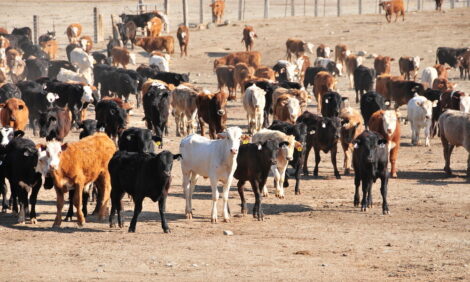



Protecting Livestock from Schmallenberg Virus
CANADA - The Canadian Food Inspection Agency (CFIA) is implementing new import measures to help protect Canadian livestock from the Schmallenberg virus, a recently discovered virus currently present in Europe.
"This government is committed to protecting the health and safety of Canadian livestock and the livelihoods that depend on them," said Agriculture Minister Gerry Ritz.
Effective immediately, animals must test negative for the Schmallenberg virus before their semen or embryos can enter Canada from countries in the European Union. Specifically, this will apply to bovine, bison, water buffalo, sheep and goat semen, as well as to bovine and bison embryos.
"The CFIA is taking these measures to protect our national herd from the production losses and economic consequences associated with this emergent animal disease," said Dr Brian Evans, Canada's Chief Veterinary Officer. "We continue to collaborate closely with regulatory officials in Europe to respect their control measures and the evolution of the scientific understanding of the disease."
Information on the testing requirements can be found on CFIA's Automated Import Reference System (AIRS).
The Schmallenberg virus belongs to a group of viruses that are transmitted by insects that bite. The virus is currently circulating in Europe, where it appears to be causing a range of symptoms in ruminant livestock, including fever, diarrhea, reduced milk yield, as well as birth defects.
There is no evidence to date that the Schmallenberg virus is associated with any human illness.
The CFIA will continue to monitor the situation in Europe and will make adjustments to import controls based on science, as required.
TheCattleSite News Desk


